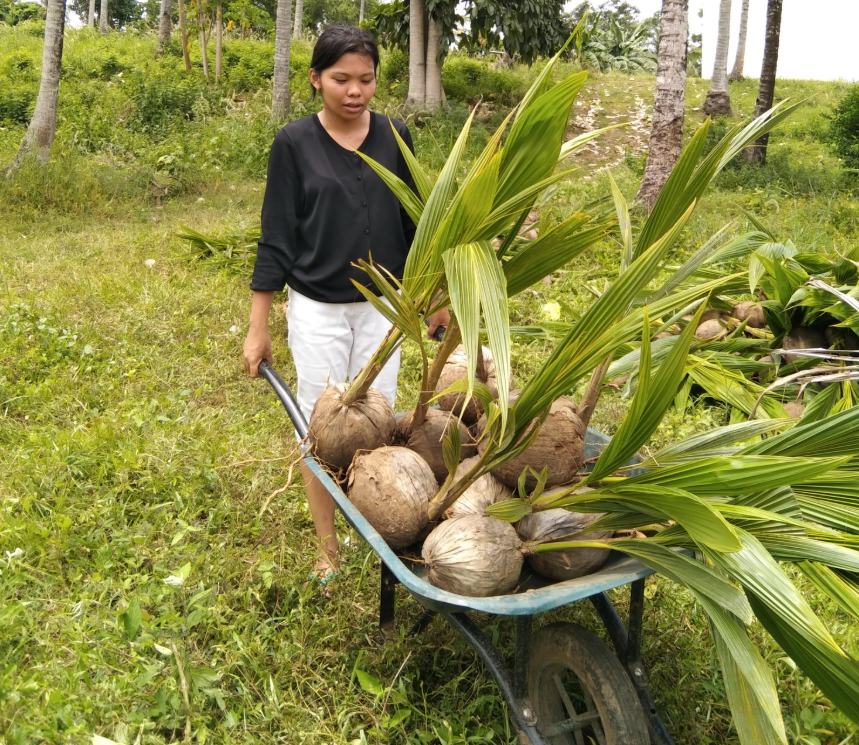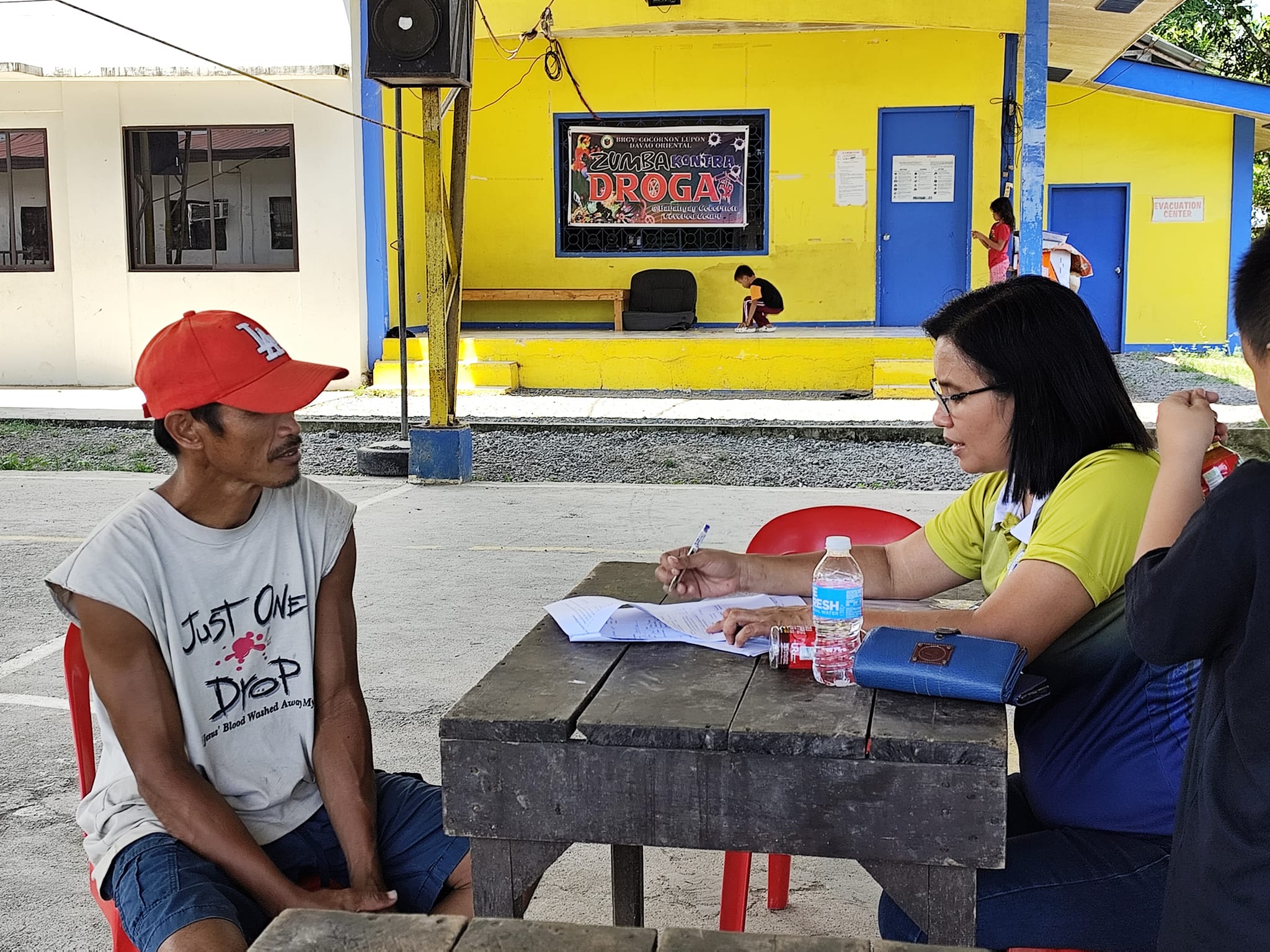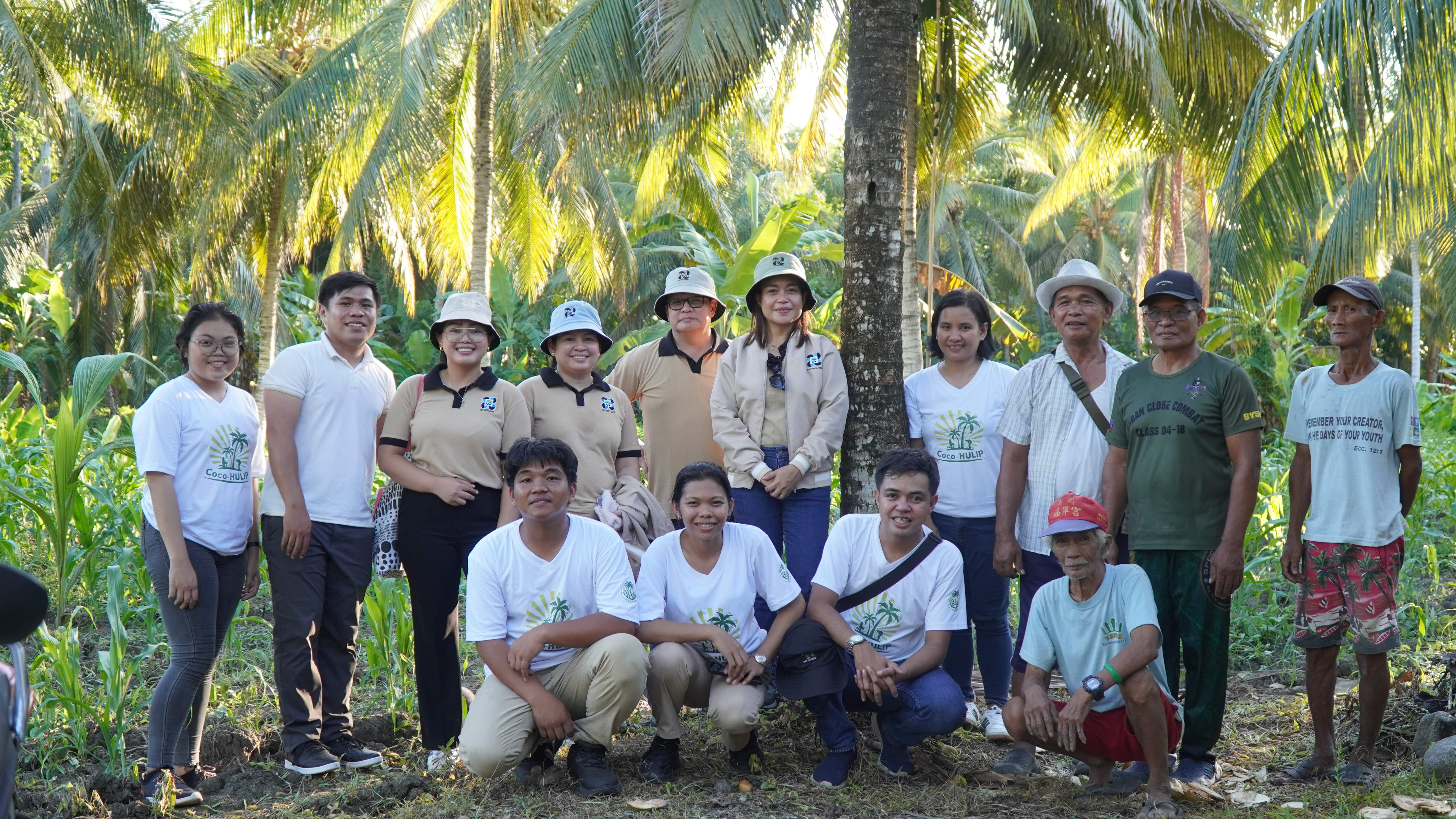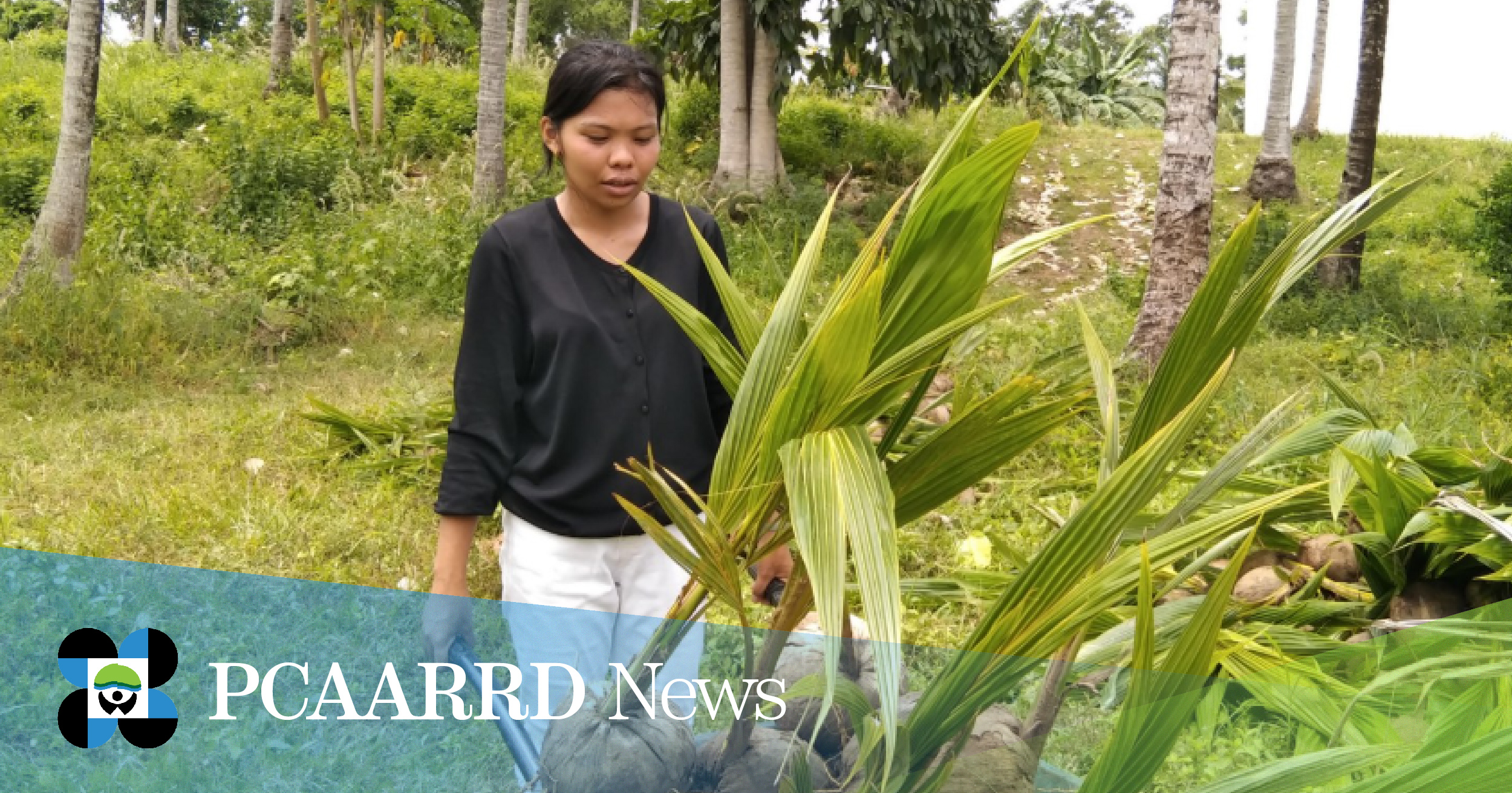An ongoing project is reviving coconut farms in Davao, dominated by old, senile, and low yielding palms. Results from farmer interviews revealed that the widespread prevalence of these palms is attributed to the impact of Typhoon Pablo—a super typhoon that devastated the region more than a decade ago.

The project, “Coconut Hybrid Utilization in the Locality for Improved Productivity (Coco-HULIP) in Davao Region,” is funded by the Philippine Council for Agriculture, Aquatic and Natural Resources Research and Development of the Department of Science and Technology (DOST-PCAARRD) through the Coconut Farmers and Industry Development Plan (CFIDP) Coconut Hybridization Program (CHP) Research.
Led by Ms. Erna S. Macusi of the Davao Oriental State University (DOrSU), the project team interviewed local coconut farmers to evaluate the productivity and technical efficiency of the region’s coconut production system. With this, the project team recommended providing technical assistance to farmers and using improved, high yielding hybrid coconut varieties to increase their average nut per palm.

Moreover, the project is optimizing hybrid coconut production specific to Davao’s conditions and identifying high yielding and adaptable hybrids to gradually replace typhoon-damaged, senile, and low yielding palms.
The project is evaluating three hybrid varieties: PCA 15-1 [Catigan Green Dwarf (CATD) x Laguna Tall (LAGT)], PCA 15-9 [Tacunan Green Dwarf (TAGD) x Tagnanan Tall (TAGT)], and PCA 15-10 (TAGD x LAGT). The Philippine Coconut Authority-New Coconut Seed Production Center (PCA-NCSPC) supplied a total of 1,600 seedlings of these varieties for adaptability trials under local conditions, including soil assessments and site evaluations.
Ms. Macusi’s team also plans to expand and assess the adaptability of PCA 15-2 [Malayan Red Dwarf (MRD) x TAGT] and PCA 15-4 (CATD x TAGT) under Davao Oriental conditions.
Complementing this, the project also undertakes an in-situ characterization and evaluation of existing traditional and hybrid coconuts in Davao Oriental. This will aid in identifying varieties present in existing farms that are highly adaptable to the agroecological conditions of the province.
During an online project review, DOST-PCAARRD’s Crops Research Division (CRD) Director Leilani D. Pelegrina suggested the appropriate tagging of surveyed hybrids and inviting experts from PCA for easier and more accurate identification of coconut varieties to further improve the project implementation.

Meanwhile, DOrSU Research Director Lanie B. Laureano affirmed her support to the research team in their efforts to address the issue of declining coconut productivity in the Davao region.
The review was attended by key officials and representatives from DOST-PCAARRD, DOST Region XI, and PCA-Davao Research Center.
DOST-PCAARRD’s Deputy Executive Director for Research and Development Juanito T. Batalon led a field monitoring visit to Mati City, Tarragona, and San Isidro in Davao Oriental to validate these accomplishments on-site.

